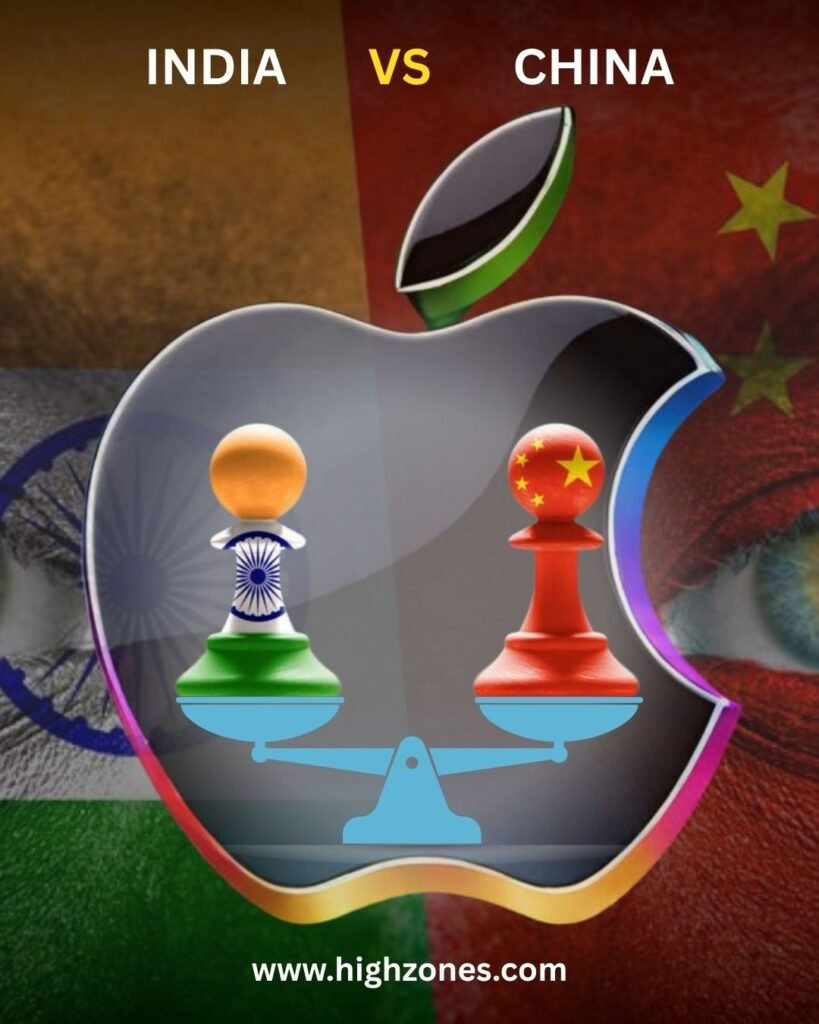In a striking move that feels more like a global chess play than a routine HR shift, China has yanked back over 300 of its engineers from Apple’s production lines in India. And make no mistake — this isn’t just about people; it’s about power, pressure, and positioning. With tensions between India and China heating up again, this mass recall has rattled Apple’s carefully laid-out plan to break free from Chinese manufacturing dependency.
What Just Happened ?
According to multiple sources, China has pulled the plug on hundreds of its engineers working inside Apple’s Indian factories — including those operated by key partners like Foxconn, Wistron, and Pegatron. These aren’t just workers — they’re highly skilled engineers, the very backbone of tech knowledge transfer Apple was relying on to scale up iPhone production in India.
And here’s the twist: this doesn’t look like a company decision. It smells like a calculated move from the Chinese government, possibly aimed at slowing India’s rise in global electronics manufacturing.
It’s not the first time China has weaponized its economic influence. From controlling rare earth exports to tightening capital equipment flow, China knows how to hit where it hurts — quietly, but effectively.

Why Should You Care?
Let’s be clear — this is not just an Apple problem. It’s a wake-up call for the entire tech world. For years, Apple has been trying to loosen its grip on China, especially after the COVID supply chain chaos and rising U.S.-China friction. India was supposed to be the golden alternative — cheaper labor, government incentives, growing infrastructure.
And it’s working — kind of. As of 2024:
India now makes over 10% of the world’s iPhones
That number is projected to soar to 25% by 2027
But here’s the catch: scaling production isn’t just about factories and machines. It’s about people who know how things work, who can teach others, who can transfer the tech DNA. And most of those people — right now — are Chinese.
So when China recalls 300 of them at once?
That’s not a HR change.
That’s a strategic slap.
10% of global iPhone production occurred in India
25% production share is projected by 2027
Apple has been investing heavily in India’s electronics ecosystem, with Foxconn operating major plants in Tamil Nadu and Tata Electronics acquiring a 60% stake in Pegatron’s India operations — all aimed at reducing reliance on China.
China’s Strategic Leverage
China’s recall of its skilled engineers is not just a workforce adjustment — it’s a calculated move to control the transfer of manufacturing expertise. Experts suggest:
This could slow down the skill development of Indian workers
It may hinder Apple’s goal of full production localization
China has previously used similar strategies — like rare earth export restrictions — to assert pressure on global corporations
Taiwan Steps In
In the response for the same, Foxconn is also replacing some of their Chinese workers with Taiwanese engineers, it highlighting the complexity of Apple’s balancing act between technology transfer, national interests, and geopolitical navigation.
The Bigger Picture for Apple
Despite the disruption, Apple’s commitment to India remains strong, backed by:
Indian government incentives

A growing tech manufacturing ecosystem
Local partnerships with Tata and others
But the Chinese recall exposes a critical vulnerability in Apple’s plan — technological dependence on Chinese know-how. Without smooth knowledge transfer and stability, India’s potential to become the next China for Apple may face hurdles.
Final Thoughts
This isn’t just about 300 employees — it’s about global control over tech, talent, and trade. China’s move illustrates how labor itself has become a weapon in international economics. As Apple attempts to de-risk its supply chain, this incident is a reminder that manufacturing isn’t just about machines — it’s about people, power, and politics. read more articles like this only on highzones tech updates.
